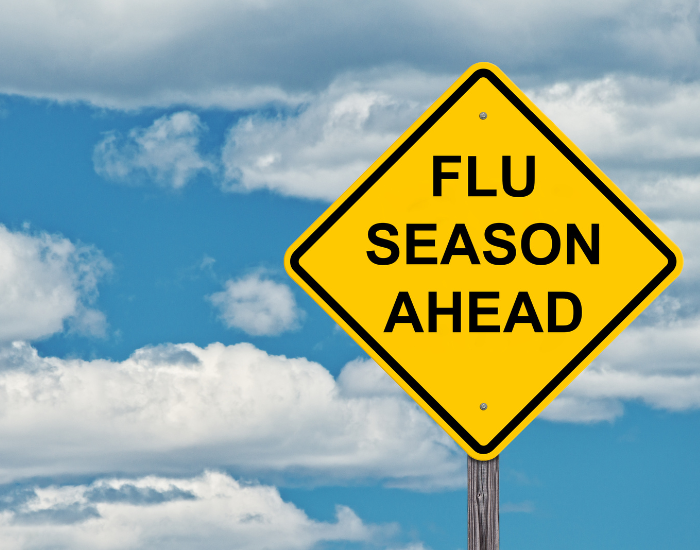When experiencing respiratory symptoms, it can be challenging to know whether you have the seasonal flu or respiratory syncytial virus (RSV). Both illnesses share similar symptoms, such as cough, fever, and congestion, which often leads to confusion among many patients and healthcare providers. However, accurate and timely diagnosis is crucial for appropriate treatment and management. Today, we will discuss and understand the differences between a flu test and an RSV test, shedding light on the importance of distinguishing between these two viral infections.
The Influenza Virus and Its Testing Methods:
Influenza, commonly known as the flu, is caused by the influenza virus, primarily affecting the respiratory system. The flu can range from mild to severe, and in some cases, it can lead to life-threatening complications. The flu test aims to detect the presence of the influenza virus in a patient’s respiratory system. There are two main types of flu tests: rapid influenza diagnostic tests (RIDTs) and molecular tests (such as PCR tests). RIDTs offer quick results but may have a higher rate of false negatives, while molecular tests are more accurate but require longer processing times in laboratories. When patients visit My Care Labs in Fremont, CA, they are not only being tested for COVID-19. With just one swab, patients take our gold standard combo test which simultaneously tests for COVID-19, influenza A & B, and RSV. Our combo test allows patients to be proactive against common infections.
Source: (Centers for Disease Control and Prevention – CDC)
RSV – The Respiratory Syncytial Virus:
Respiratory syncytial virus (RSV) is a common respiratory infection that typically affects young children, the elderly, and individuals with compromised immune systems. RSV can cause mild cold-like symptoms in healthy individuals, but in vulnerable populations, it can lead to severe respiratory distress. Like the flu test, RSV testing also involves the detection of the virus in respiratory secretions. The two primary types of RSV tests are rapid antigen tests and molecular tests, each with its strengths and limitations.
Source: (World Health Organization – WHO)
Common Symptoms of Flu and RSV:
Before understanding the differences in testing methods, it is essential to recognize the shared symptoms of flu and RSV. Both infections cause coughing, sneezing, fever, nasal congestion, and body aches. Moreover, they are both highly contagious, and the viruses spread from infected individuals to non-infected individuals quickly. Due to the similar symptoms, it is often challenging to distinguish between the two without proper diagnostic testing.
Source: (Mayo Clinic)
Importance of Accurate Diagnosis:
Differentiating between the flu and RSV is crucial for several reasons. First, the treatments for these viruses can vary significantly. While antiviral medications like Tamiflu are available for the flu, they are ineffective against RSV. Secondly, individuals with RSV, especially young children and the elderly, might require hospitalization, and prompt identification of the virus can lead to better outcomes. Lastly, an accurate diagnosis can help in preventing the spread of these viruses to vulnerable populations.
Source: (National Institute of Allergy and Infectious Diseases – NIAID)
Rapid Influenza Diagnostic Tests (RIDTs):
RIDTs are commonly used in clinics and doctor’s offices for quick flu detection. These tests are important because they detect specific viral proteins on the surface of the influenza virus. A healthcare provider swabs the patient’s nose or throat, and the sample is tested on-site. Although RIDTs provide rapid results within 15-30 minutes, they are less sensitive than molecular tests, leading to higher rates of false negatives. Therefore, negative RIDT results might necessitate further testing.
Source: (Food and Drug Administration – FDA)

Molecular Tests for Flu:
Molecular tests, such as reverse transcription-polymerase chain reaction (RT-PCR) tests, are highly sensitive and specific for detecting the influenza virus. These tests work by amplifying the viral RNA in the respiratory sample, making them more accurate than RIDTs. However, molecular tests generally require sending the samples to a laboratory, leading to longer processing times and delayed results, typically ranging from a few hours to a day.
Source: (Journal of Clinical Microbiology)
Rapid Antigen Tests for RSV:
Similar to RIDTs for flu, rapid antigen tests are used for the rapid detection of RSV in respiratory samples. These tests identify specific viral proteins on the surface of the RSV virus. They are quick and provide results within 15-30 minutes. However, like RIDTs for flu, rapid antigen tests for RSV may have lower sensitivity, resulting in a higher rate of false negatives.
Source: (Clinical Microbiology Reviews)
Molecular Tests for RSV:
Molecular tests, such as PCR-based assays, are considered the gold standard for RSV diagnosis. Like molecular flu tests, PCR-based RSV tests amplify viral RNA in respiratory samples, providing highly accurate results. However, similar to molecular flu tests, RSV PCR tests necessitate laboratory processing, leading to longer turnaround times for results.
Source: (Journal of Clinical Virology)
Conclusion:
In conclusion, distinguishing between the flu and RSV is crucial for appropriate management and containment of these respiratory infections. Rapid influenza diagnostic tests (RIDTs) offer quick results for flu diagnosis, but they may yield false negatives. Molecular tests are more accurate but require longer processing times. For RSV, rapid antigen tests provide quick results, but molecular tests remain the most accurate option. For those residing in the Tri-City area ( Fremont, Union City, and Newark), My Care Labs welcomes walk-ins and appointments for all testing inquiries. Additionally, for our SoCal community members, My Care Labs offers a pop-up testing location in riverside on Sundays from 9:30am-3:30pm. For more details on our hours and locations, please visit our, “ COVID-19 Testing Locations,” section on our website.






